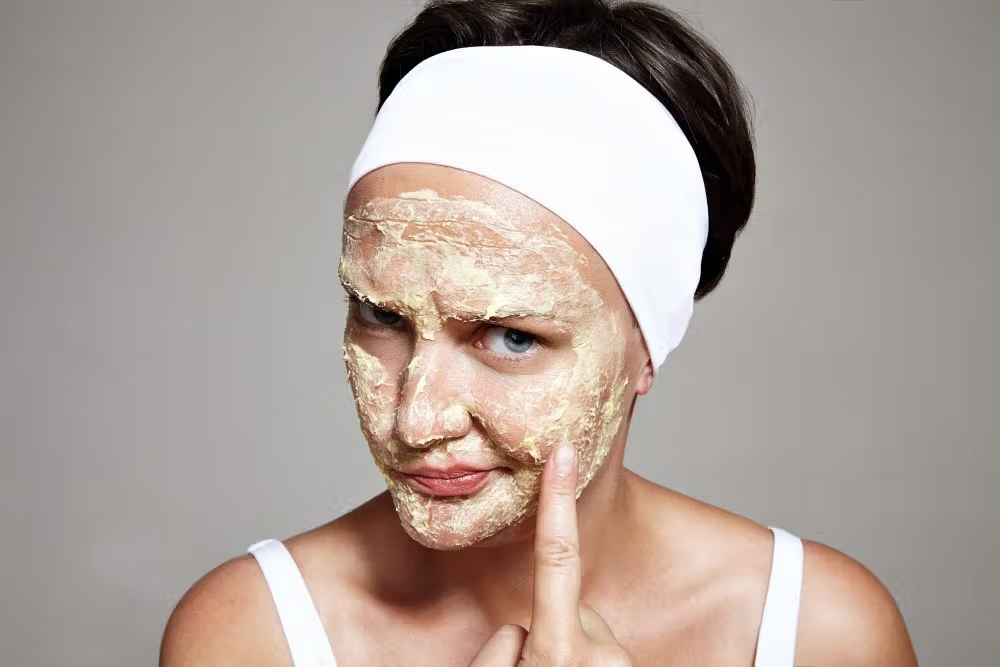Caring for your vaginal health is an essential aspect of overall well-being. While many people may shy away from discussing it, practicing proper vaginal care is crucial for preventing infections, maintaining comfort, and feeling your best. Let’s dive into the best practices for taking care of your vagina to ensure optimal health.
Understanding Vaginal Health
Maintaining a healthy vagina involves more than just cleanliness. It includes a balanced pH, good hygiene habits, and safe practices that prevent irritation or infection.
- What is Vaginal Health?
Vaginal health refers to the state of the vagina and surrounding areas, including the absence of infections, an optimal pH level, and overall comfort. It encompasses proper lubrication, normal discharge, and no unusual odor.- Why is it Important?
Proper vaginal care helps prevent issues such as bacterial infections, yeast infections, and discomfort. It’s an important part of reproductive health and can also affect one’s quality of life.
The Anatomy of the Vagina

Understanding the anatomy is the first step towards better care.
- External vs. Internal Parts
The vagina is the internal canal leading to the cervix, while the external parts, known as the vulva, include the labia, clitoris, and vaginal opening. Both need attention when it comes to hygiene. - Functions of Different Parts
The external and internal areas have different roles. While the vagina cleans itself naturally, the vulva needs to be cleaned regularly to remove sweat and bacteria buildup.
Maintaining Proper Hygiene
Good hygiene practices are key to avoiding infections and irritation.
- The Do’s of Vaginal Hygiene
Wash the vulva with warm water and a gentle, fragrance-free soap. Wear clean, breathable underwear daily, and practice good menstrual hygiene. - The Don’ts of Vaginal Hygiene
Avoid using harsh soaps, douches, or scented products as they can disturb the natural pH balance. Over-washing can also lead to dryness and irritation.
Safe Cleaning Practices
When it comes to keeping the vagina clean, less is often more.
- Use of Mild Soaps or Cleansers
Opt for mild, unscented soap or specially formulated feminine cleansers to avoid irritating the delicate skin around the vulva. - Why You Should Avoid Douching
Douching can disrupt the natural balance of bacteria in the vagina, increasing the risk of infections like bacterial vaginosis or yeast infections. - How to Properly Wash Your Vulva
Gently wash the outer parts of the vulva with water, and pat it dry with a clean towel. There’s no need to clean inside the vagina; it is self-cleansing.
Choosing the Right Underwear
The type of underwear you choose can have a significant impact on vaginal health.
- The Best Fabrics for Vaginal Health
Cotton is the best choice because it is breathable and helps keep moisture away, reducing the risk of yeast infections. Avoid synthetic materials that can trap heat and moisture. - How Often Should You Change Your Underwear?
Change your underwear daily, or more often if you sweat a lot or exercise. This helps keep the area dry and clean. - Impact of Tight Clothing on Vaginal Health
Tight clothing can cause chafing and trap moisture, leading to irritation and increased risk of infection. Choose loose-fitting clothes when possible.
Diet and Vaginal Health
What you eat and drink can influence your vaginal health.
- Foods That Promote Vaginal Health
Yogurt, garlic, and cranberries are great for maintaining vaginal health because they support the natural balance of bacteria. Probiotics can also help maintain a healthy vaginal flora. - The Role of Hydration
Drinking plenty of water is crucial for overall health, including vaginal health. It helps flush out toxins and keeps the tissues hydrated. - Supplements That Can Help
Probiotic supplements, vitamin D, and omega-3 fatty acids can support vaginal health. Always consult a healthcare professional before adding supplements to your routine.
Menstrual Care Tips
Taking care of vaginal health during your period requires some special attention.
- Best Practices for Using Tampons and Pads
Change tampons and pads every 4-6 hours to prevent bacterial growth. Consider using organic, unscented products to reduce irritation. - Menstrual Cups: Pros and Cons
Menstrual cups are a sustainable option that can be worn for up to 12 hours. However, they must be sterilized between uses and may not be suitable for everyone. - Importance of Changing Products Regularly
Leaving a tampon or pad in for too long can lead to infections or toxic shock syndrome. Stick to a regular changing schedule.
Sexual Health and Vaginal Care
Safe sex practices and post-sex hygiene can help maintain vaginal health.
- Safe Sex Practices
Use condoms to protect against sexually transmitted infections (STIs) and ensure lubrication to avoid friction-related irritation. - The Importance of Lubrication
Lubricants reduce friction and make sex more comfortable. Choose water-based lubricants to avoid irritation. - Post-Sex Hygiene Tips
Urinate after sex to help flush out any bacteria that may have entered the urethra. Gently clean the external area with warm water.
Handling Vaginal Discharge
Discharge is normal, but it’s important to understand when it indicates a problem.
- Understanding Normal vs. Abnormal Discharge
Normal discharge is clear or milky, with a slight odor. Discharge that is green, yellow, or has a strong odor may indicate an infection. - When to Consult a Doctor
If you experience itching, burning, or abnormal discharge, it’s important to seek medical advice. Early treatment can prevent complications.
Preventing Infections
Practicing good habits can help prevent infections.
- Common Vaginal Infections
Yeast infections, bacterial vaginosis, and trichomoniasis are some of the most common vaginal infections. - Tips for Preventing Bacterial Vaginosis and Yeast Infections
Avoid wearing wet clothes for long periods, change out of sweaty workout gear quickly, and avoid using scented products.
Using Products Safely
The products you use can significantly impact your vaginal health.
- What to Look for in Feminine Products
Choose products that are fragrance-free and hypoallergenic to reduce the risk of irritation. - Risks of Using Scented Products
Scented products can disrupt the vagina’s natural pH and lead to irritation or infections. - Are Natural Products Better?
Natural products can be a better choice as they often contain fewer irritants. However, always ensure they are specifically formulated for vaginal use.
When to See a Gynecologist
Regular visits to the gynecologist are essential for maintaining vaginal health.
- Regular Check-ups
Aim to visit your gynecologist at least once a year for a routine exam, even if you aren’t experiencing any issues. - Symptoms That Shouldn’t Be Ignored
Seek medical attention if you experience unusual symptoms such as severe itching, persistent pain, or abnormal discharge.
Lifestyle Habits That Affect Vaginal Health
Everyday habits can have a significant impact on vaginal health.
- The Impact of Smoking and Alcohol
Smoking can reduce blood flow to the vagina, while excessive alcohol consumption can disrupt hormonal balance. - How Stress Can Affect Vaginal Health
Stress can weaken the immune system, making it harder for the body to fight infections. - Importance of Regular Exercise
Exercise boosts circulation and supports overall health, including reproductive health. Avoid staying in sweaty clothes for too long after workouts.
Myths and Misconceptions About Vaginal Care
There is a lot of misinformation out there regarding vaginal care.
- Debunking Common Myths
For example, many believe that the vagina needs to be “cleaned” internally, which is not true as it is self-cleaning. - The Truth About “Tightening” Products
So-called “tightening” products can cause irritation and should be avoided. Kegel exercises are a safer, natural alternative for strengthening pelvic floor muscles.
Conclusion
Taking care of your vaginal health doesn’t have to be complicated. With the right practices, such as using gentle products, choosing breathable fabrics, and understanding when to seek medical advice, you can maintain a healthy and happy vagina.
FAQs About Vaginal Care
- Can I use scented products for vaginal care?
No, scented products can disrupt the natural pH balance and lead to irritation or infections. - Is douching ever necessary?
Douching is not recommended because it can disrupt the natural bacterial balance of the vagina and increase the risk of infection. - What does healthy vaginal discharge look like?
Healthy discharge is usually clear or milky and may have a slight odor. It changes throughout your menstrual cycle. - Can my diet really affect my vaginal health?
Yes, a balanced diet rich in probiotics and plenty of water can support the natural balance of bacteria and overall vaginal health. - How often should I visit a gynecologist?
You should have a check-up at least once a year, or sooner if you experience any unusual symptoms or discomfort.
Maintaining vaginal health is all about balance, knowledge, and proper care. Following these practices can help keep you comfortable and healthy






